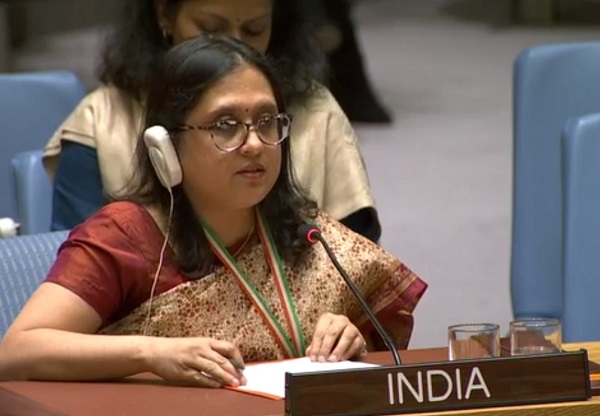United Nations, India has reduced its population growth rate by improving the conditions for women, according to Paulomi Tripathi, a first secretary in India’s UN Mission.
“Better health and education facilities for women, greater participation of women in governance at grassroots level coupled with enhanced access to family planning services have contributed to rapid fall in the fertility rate and population growth rate in India,” Tripathi said here on Wednesday at a high-level meeting to commemorate the 25th anniversary of International Conference on Population and Development (ICPD) held in Cairo.
According to the World Bank, the fertility rate for Indian women has steadily come down, from 3.31 children per woman in 2000 to 2.3 in 2017, just above the replacement level of 2.2.
She said that the 1994 meeting in Cairo marked a change in the approach to controlling population growth, moving away from setting targets to “improving the lives of individuals, particularly women, to induce demographic changes”.
“The agreement that population policies should address social development, especially the advancement of women, and that family planning should be provided as part of a broader package of health care, enlarged the scope of policy discussions,” she said.
Behind the new approach was “a belief that enhancing individual health and realization of other rights would ultimately lower birth rate and slow population growth,” she said.
India has been following this strategy, she pointed out.
To further improve the availability of health services India took a giant step towards universal health coverage last September by launching the National Health Protection Scheme, to provide medical coverage for 500 million people, she said.
This is the largest public health insurance programme in the world, officially known as Pradhan Mantri – Jan Arogya Yojana and nicknamed, “Modicare”.
“The holistic, service-oriented approach reflected in ICPD Programme of Action remains relevant for addressing emerging challenges and opportunities in the context of rapid urbanisation and population ageing,” Tripathi said.
As a step towards Universal Health Coverage, India has launched the world’s largest healthcare programme “National Health Protection Scheme”, in last September to provide medical treatment coverage for 500 million people.
Secretary-General Antonio Guterres said that population growth was also the result of people living longer, healthier lives and hence it was “a sign of human achievement”.
At the same time, he noted its impact on the environment.
“It also has contributed to an increase in global production and consumption,” he said. “This is one more reason to adjust our production and consumption habits to avert even more serious consequences for lives and livelihoods, especially for the most vulnerable. We must remember that we are still losing the race against climate change.”
Guterres said that the Cairo conference had recognised the importance of promoting the rights of women and girls to ensure the well-being of individuals, families and nations and there has been significant progress over the past 25 years.
“Advances in gender equality and the promotion of women’s rights have contributed to reducing poverty and hunger, and improving education and health,” he said. “Child and maternal mortality have been cut by nearly half.”
However, he warned, “We are seeing a global pushback on women’s rights, including reproductive rights and vital health services.”
There are many challenges to the well-being and human rights of women and girls, he said, pointing out that one in three of them are victims of violence worldwide and globally, about 650 million women were married as children while more than 500 women and girls die during pregnancy and childbirth.










